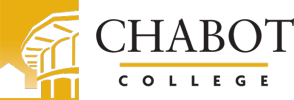
Early Childhood Development (Associate Teacher)
This program map from the 2024-2025 catalog year represents one possible pathway to complete this program. Your pathway may vary depending on your transfer plans and also previous college credit, including AP Test scores, concurrent enrollment courses and high school articulated courses.
I'm ready to get started. What do I do next?
- Review this program map to get an overview of the required courses
- Meet with a counselor to develop your customized student education plan www.chabotcollege.edu/counseling
- Use DegreeWorks, an online student education planning tool, to track your progress toward graduation www.chabotcollege.edu / admissions / degreeworks
What can I do with this major?
Certificate completers will meet requirements to be an Assistant or Associate teacher in a wide-variety of public, private and faith-based child care settings. Those who choose ECD 67 Infant and Toddler Development and Caregiving or ECD 87 - Infant and Toddler Environments, Care and Education as their optional course will also be qualified to work in a setting that cares for infants and toddlers. Many students earn this certificate, begin working in a setting and continue to work towards the AA in ECD or the AS-T in Early Childhood Education. Students who earn this certificate can also continue to take courses to earn the Infant/Toddler Specialist Certificate of Achievement or the Administration Certificate to expand their employment options.
Learning and Career Pathway
- Social Sciences, Humanities & Education
Icon Key
Semester 1
ECD
56
Child Growth and Development
Semester 2
ECD
62
Child, Family and Community
ECD
63
Early Childhood Curriculum
List A Course
List A
Select one course from List A below: